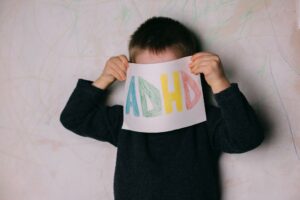If you have ADHD, you may be wondering if group therapy is the right treatment for you. This type of therapy has many benefits, which is why it is often recommended for people with ADHD. In this blog post, we will discuss some of the things you should know about ADHD group therapy. We will also provide tips for finding a therapist who can help you get the most out of this type of treatment.
Contents
Is Group Therapy Effective For ADHD?
 Generally, group therapy is an effective treatment for ADHD. Studies show that group therapy can help people with ADHD manage their symptoms and may even improve functioning in those with more severe cases of the disorder. When done properly, group therapy offers several advantages to individuals struggling with attention-deficit/hyperactivity disorder (ADHD).
Generally, group therapy is an effective treatment for ADHD. Studies show that group therapy can help people with ADHD manage their symptoms and may even improve functioning in those with more severe cases of the disorder. When done properly, group therapy offers several advantages to individuals struggling with attention-deficit/hyperactivity disorder (ADHD).
So, simply the answer is yes, group therapy can be effective in addressing ADHD. The reason is that when people with ADHD are in a group, they learn to interact and communicate better with others. They also get the opportunity to develop the knowledge and skills needed to manage their symptoms and learn how to cope with difficult situations.
Therefore, be sure to consider group therapy when looking for an effective treatment option to address your ADHD. With the right support, you can learn to manage symptoms and improve functioning in both your personal and professional life.
How Does ADHD Group Therapy Work?
When you are in a group setting, it is important to understand the dynamics of how the group works. People with ADHD are encouraged to express themselves openly in the group and can use their own coping strategies to manage their symptoms. The therapist will also help guide conversations, mediate conflicts and provide structure throughout the meeting.
The primary goal of such a therapy is to help those with ADHD understand their symptoms, develop strategies for managing them, and build self-esteem. Group therapy provides a safe environment where people can discuss the challenges they face and learn from each other’s experiences.
It also helps members create social support networks that can be beneficial during difficult times. There are different techniques that may be used in ADHD group therapy including, but not limited to, cognitive-behavioral and interpersonal therapies.
The therapist can also give practical advice that members of the group can use in everyday life such as time management strategies or methods for reducing stress. This type of therapy helps people with ADHD become more self-aware and gain insight into the challenges they face.
How Do I Set Up An ADHD Support Group?
 As you have chosen to go further with ADHD group therapy and support, here are the steps you should take:
As you have chosen to go further with ADHD group therapy and support, here are the steps you should take:
1. Find a suitable meeting space: The first step is to find an appropriate meeting space that is comfortable and convenient for your members. This could be a school or community center, church, library, or even a private home.
2. Establish guidelines: Establish ground rules and expectations for the group, such as respectful behavior, confidentiality, and punctuality.
3. Establish a format: Decide on the structure of your meetings (such as how long they should be) and decide who will lead each one. You may also need to clearly define what topics are off-limits or if there are any requirements for attendance.
4. Gather members: Invite potential members to join the group and provide them with information about what it is, how it works, and why you are organizing it. You can also use online platforms like social media or newsletters to reach out to those who may be interested in joining the group.
5. Connect with professionals: Building relationships with professionals in the field of ADHD can be beneficial for the group. These could include psychiatrists, psychologists, and teachers.
6. Establish resources: Make sure your members have access to helpful websites and books about ADHD, as well as local support networks if available. Encourage them to bring their own ideas and experiences to share with the group.
7. Monitor progress: Regularly assess the progress of each member and provide feedback and guidance when needed. This will ensure that each person is making positive strides forward in their journey with ADHD.
These steps should give you a good starting point for setting up an ADHD support group. But remember to always be flexible and open to new ideas that may arise. If you’re open-minded and willing to keep learning, your group can become a powerful tool for helping those with ADHD manage their condition better.
What Benefits You Can Expect With ADHD Group Therapy?
 It might be difficult for people with ADHD to participate in group therapy. However, there are many potential benefits that come from being part of a group setting. Some of these are listed below:
It might be difficult for people with ADHD to participate in group therapy. However, there are many potential benefits that come from being part of a group setting. Some of these are listed below:
1. Improved Self-Awareness: People with ADHD often struggle to recognize their feelings and behaviors, which can lead to further social isolation. By participating in group therapy, individuals can gain a better sense of self-awareness and learn how to regulate their emotions.
2. Improved Social Connections: Group therapy allows people with ADHD to form positive connections with other individuals who have similar experiences. This can provide a safe space for people to share their feelings and thoughts without fear of judgment or criticism.
3. Improved Self-Esteem: By participating in group therapy, individuals can learn from the successes and challenges of other group members. This can boost their self-esteem and give them the confidence to face life’s challenges.
4. Improved Problem-Solving Skills: Group members can learn from each other’s experiences and perspectives, which can help them develop and improve their problem-solving skills. This can provide a great foundation for individuals to use in everyday life.
5. Increased Support: Group therapy provides a supportive and encouraging environment for individuals with ADHD. It allows them to find a source of positive reinforcement, which can help them cope with the daily struggles that come from living with ADHD.
Overall, ADHD group therapy can be highly beneficial for you. By attending regular sessions, individuals can gain a greater sense of self-awareness, develop better social skills, and find an increased level of support. This can lead to improved quality of life and greater long-term success.
What Are The Best ADHD Support Groups?
Here are some examples of the best ADHD support groups available:
- Mantra Care: This organization offers both online and in-person support groups for adults with ADHD. It also provides information on treatment options, as well as tools to help manage symptoms.
- CHADD (Children and Adults with Attention Deficit/Hyperactivity Disorder): This organization is one of the largest and most well-known organizations for supporting people living with ADHD. They offer a range of resources, including free monthly meetings all over the country, an online community, educational materials, and information about treatment options.
- ADDitude Magazine: This magazine is designed specifically for adults with ADHD and offers information, support, and advice on managing the condition. It has an active online community to get additional help from peers with similar experiences.
- ADDA (Attention Deficit Disorder Association): This association provides a range of resources and support for adults with ADHD, including a blog, an online forum, webinars, and workshops. It also provides resources for families and professionals who work with people living with this condition.
- ADHD Support Groups on Facebook: Facebook is a great resource for finding local or online support groups that are tailored to those living with ADHD. The groups typically offer a safe place to share experiences and provide emotional support.
No matter which option you choose, the important thing to remember is that you are not alone in your journey. No matter how challenging ADHD may be, there are people and resources available to provide support and guidance. Taking advantage of these support systems can help make managing ADHD easier and more manageable.
Can You Treat ADHD On Your Own?
 There are some options that can help you manage ADHD symptoms on your own. Here are some strategies to consider:
There are some options that can help you manage ADHD symptoms on your own. Here are some strategies to consider:
- Get organized. People with ADHD can be disorganized and easily overwhelmed by clutter or chaos, so organizing your home, office, and schedule can make a big difference in how well you manage everyday tasks.
- Eat healthy meals and snacks. Eating a healthy, balanced diet can help improve your focus and alertness while reducing hyperactivity and impulsivity. Make sure to eat a variety of fruits, vegetables, whole grains, lean proteins, and healthy fats throughout the day to keep your energy level steady.
- Exercise regularly. Regular physical activity can help reduce stress and anxiety while improving focus, concentration, and self-esteem. Aim for at least 30 minutes of exercise a day to reap the full benefits.
- Structure your time. People with ADHD have difficulty focusing and staying on task. So it can be helpful to break tasks down into smaller steps and create schedules or reminders to keep you on track.
- Practice mindfulness techniques. Mindfulness can help you stay present and focused by bringing your attention to your breath or body sensations for a few minutes each day. This can be calming and increase self-awareness. So that you are more aware of when your ADHD symptoms are beginning to act up.
- Take breaks throughout the day. Taking short breaks can help you stay focused and organized by allowing you to take a few moments to clear your head and re-center yourself.
- Avoid distractions. Reducing the amount of noise, clutter, and other distractions in your environment can make it easier to focus on the task at hand.
By consistently following these strategies, you may be able to improve your focus, concentration, and organization while reducing hyperactivity and impulsivity. It’s important to remember that managing ADHD is an ongoing process. And that it may take time to see the full effects of any changes you make.
Conclusion
In conclusion, ADHD group therapy may be beneficial for those living with ADHD as it provides an accepting and understanding environment. That is to discuss difficulties associated with the condition. By working together in a supportive setting, individuals can learn from one another and develop helpful coping strategies to manage their symptoms.
For more information, please contact MantraCare. ADHD is a neurodevelopmental disorder characterized by difficulty in paying attention, hyperactivity, and impulsivity. If you have any queries regarding Online ADHD Counseling experienced therapists at MantraCare can help: Book a trial ADHD therapy session


